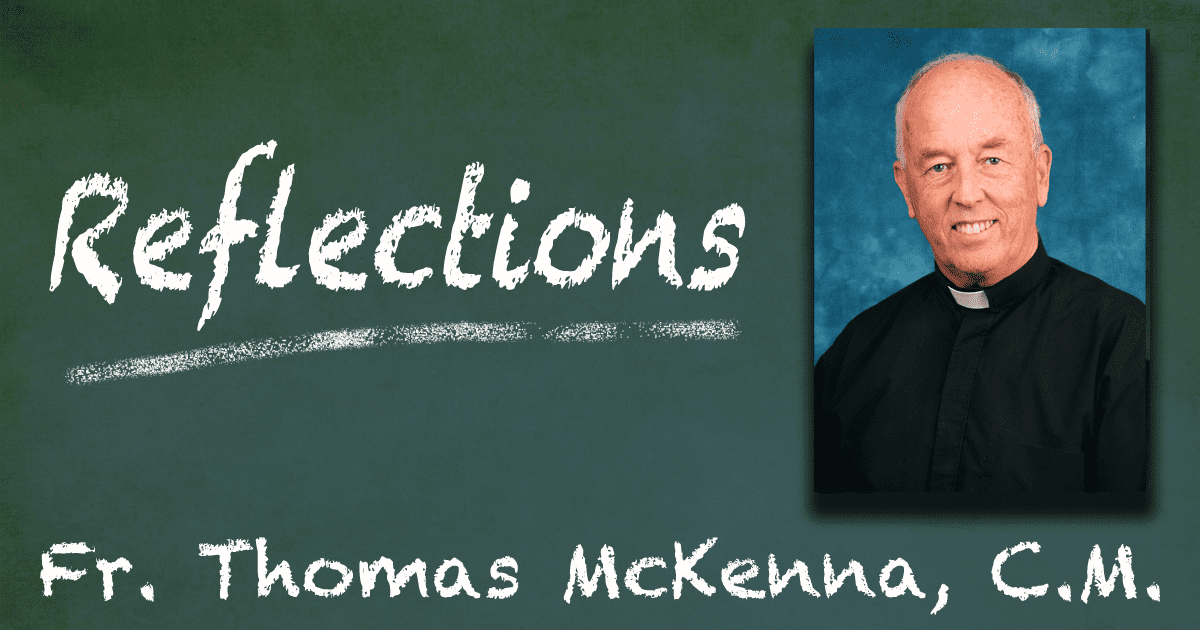I remember a heated conversation between a man who was promising something to a woman, and the woman to whom the promise was being made. It ended with her exasperated response, “Those are just words.”
She was referring to words in their weakest sense – empty sounds, carrying only the air that breathes them. In contrast, there are those other words that are solid and full and brimming over with meaning, words that carry the soul of one person to another. These second kind transmit life. They reach inside, wake something up, and move us forward. These thicker kind are anything but “just words.”
When in the Book of Deuteronomy Moses speaks to the people, his pronouncements are instances of that grounded and substantial variety. Standing before the Hebrews, he recalls words which had once conveyed freedom, protection and community, and which were now again holding out a promise-filled future.
In his letter written centuries later, St. James endorses this fuller and firmer sense. He proclaims that our very existence comes by way of this life-giving word, this solidly dependable communication planted in us from the beginning. It is this ever-reliable word that will save us. In light of that, he asks that we open ourselves to it, welcome it in. It’s not enough just to hear its sound, he continues, but we must put this word (The Word) into action, translate it into the stuff of everyday living — by doing things like taking care of the orphan and the widow and the needy neighbor.
This fullest sense of word winds through so many aspects of our faith, all of them standing on the reality that Jesus is God’s Word spoken to us –“And the word became flesh, and dwelt among us.” In a letter to an ailing priest, St. Vincent invokes this power of word: “We mustn’t let difficulties shake us; the glory of the Eternal Father and the efficacy of The Word and Passion of His Son are at stake.” (Volume: 11. p 365)
There’s one specific meaning of “word” to which Pope Francis has recently called attention; i.e., the Bible as word. He highlights the ever revolving interrelationship between Jesus as Lord, we Christians, and the Sacred Scriptures.
On the one hand, it is Jesus our Savior who in His Spirit opens our minds and hearts to what the texts really mean. But on the other, if we neglect these Scriptures, the Pontiff teaches, we can’t make much sense of the mission of Jesus and His Church. Each leans on the other, the person of Jesus Christ, and these hallowed writings that in one way or another are all about Him. Quoting St. Jerome, Francis insists, “Whoever ignores the Scriptures ignores Christ.”
Listening attentively to the readings in Church each Sunday is one important way to digest the Word. Picking up the Bible in the course of the week is another, as is doing some reading on spiritual and religious topics, or the lives of the saints — all are means to sharpen our hearing.
The point is to let these special words in, let them take root — so that they are not “just words,” churchy sounds with little connection to the wonder of God’s presence in us and all around us.
At their best, these words live. They carry the very person of our Lord Jesus to us. They inspire and strengthen us. They nudge us into the kinds of actions that bring about God’s Kingdom on earth — as it is in heaven.
There’s a familiar stanza which, as only poetry can, delivers this weighty meaning of “Word.”
“Morning has broken, like the first morning.
Blackbird has spoken, like the first bird.
Praise for the singing, praise for the morning,
Praise for them singing, fresh from The Word.” (Eleanor Farjeon)
…fresh from The Word that is Jesus Christ, God become one of us and dwelling in our midst.








Thank you, Tom. Your reflection has just sent me back to the day it was highlighted in class that the “commandments” in Ex 20 are “words.”
And these words, of course, keeps setting in motion deeds of salvation.
Beautiful reflection, Tom.
Dave